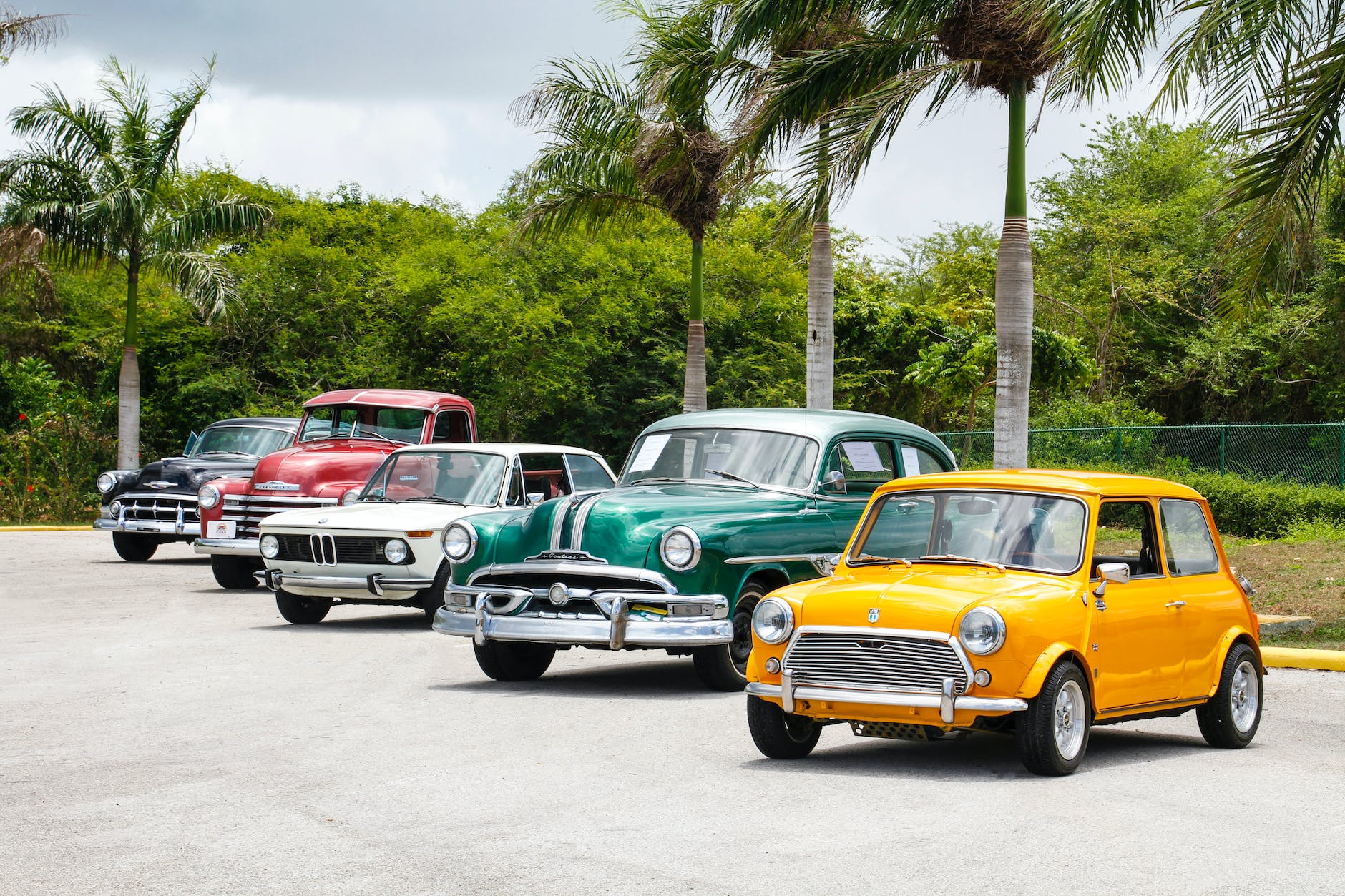
The moment you drive your new car off the dealership lot, vehicle depreciation starts to take effect. This is the rate at which a vehicle loses its value over time. It’s an inevitable process that affects all vehicles, regardless of make or model. While vehicle depreciation is a natural part of owning a car, understanding how it works can help you minimize its impact and boost your car’s resale value.
Vehicle depreciation is affected by a variety of factors, some within your control and others not. By being aware of these factors and taking proactive steps to mitigate their effects, you can significantly slow down the depreciation process. This not only helps maintain the value of your current vehicle but can also be a valuable strategy when purchasing a new car.
In this article, we’ll delve deeper into the world of vehicle depreciation, exploring the factors that influence it and showcasing innovative methods to minimize its impact. We’ll also discuss the role of regular maintenance, mileage, brand and model, smart upgrades, and how to use vehicle depreciation to your advantage when purchasing a car.
Factors that Influence Vehicle Depreciation
Multiple factors influence vehicle depreciation. These include the make and model of the vehicle, the vehicle’s age, its mileage, the condition of the vehicle, and even external factors like market demand. Understanding these factors can help you make educated decisions about vehicle ownership that can slow down depreciation.
The make and model of a vehicle can significantly influence its rate of depreciation. Luxury vehicles, for example, often depreciate faster than economy or mid-range cars. This is because the high initial cost of luxury vehicles often results in a steeper drop in value over time. Similarly, vehicles with high fuel consumption rates also tend to depreciate faster as the demand for fuel-efficient cars grows.
Another crucial factor in vehicle depreciation is the vehicle’s age. Generally, a vehicle depreciates the most in its first year, with a smaller but steady decline in value each subsequent year. That said, the condition of the vehicle can either slow down or speed up this process. A well-maintained vehicle will always hold its value better than one that’s been neglected.

Innovative Methods to Minimize Vehicle Depreciation
While vehicle depreciation is inevitable, there are innovative methods that can help you minimize its impact. One of these methods is to prioritize regular maintenance. Regular maintenance not only keeps your vehicle running smoothly but also ensures that it holds its value over time. This includes regular oil changes, tire rotations, and other routine services.
Another method is to keep your vehicle’s mileage low. High mileage is one of the key factors that potential buyers consider when evaluating the value of a used vehicle. If you’re planning to sell your car in the future, consider using public transportation or carpooling to keep your mileage down.
Lastly, consider the brand and model when purchasing a vehicle. Some brands and models are known to depreciate slower than others. Researching and choosing a vehicle with a lower depreciation rate can save you money in the long run.
How Regular Maintenance Can Slow Down Vehicle Depreciation
Regular maintenance plays a crucial role in slowing down vehicle depreciation. A well-maintained vehicle will always hold its value better than one that’s been neglected. Regular maintenance includes oil changes, tire rotations, and brake inspections. These services not only keep your car running smoothly but also help maintain its value by preventing major issues that could decrease its worth.
In addition to routine maintenance, addressing minor issues promptly can also slow down depreciation. Small issues can quickly turn into major ones if left unattended, leading to a significant decrease in your vehicle’s value. By fixing minor issues as they arise, you can help maintain your vehicle’s value.
Moreover, keeping detailed records of your vehicle’s maintenance history can also help slow down depreciation. These records can provide potential buyers with assurance about the vehicle’s upkeep, which can, in turn, increase its resale value.
The Role of Mileage in Vehicle Depreciation
Mileage is another key factor in vehicle depreciation. The more miles a vehicle has, the lower its value. This is because high mileage often indicates more wear and tear, which can lead to more significant maintenance and repair costs for the buyer.
To keep your vehicle’s mileage low, consider using alternative modes of transportation, such as public transit, biking, or carpooling. If you’re planning a long trip, consider renting a car to avoid adding significant mileage to your vehicle.
It’s also important to note that the type of miles driven can impact depreciation. Highway miles are generally considered less damaging to a vehicle than city miles, as city driving involves more frequent stops and starts, which can cause more wear and tear.
The Impact of Brand and Model on Vehicle Depreciation
The brand and model of a vehicle can significantly impact its rate of depreciation. Certain brands and models are known to hold their value better than others. Luxury cars, for example, often depreciate faster than economy or mid-range cars due to their high initial cost and the high cost of maintenance and repairs.
When purchasing a new vehicle, it’s important to research and understand the expected depreciation rates for different brands and models. This can help you make a more informed decision and potentially save you money in the long run.
Choosing a popular model can also help slow down depreciation. Popular models often have higher demand in the used car market, which can help maintain their value.

Smart Upgrades to Boost Your Car’s Resale Value
Smart upgrades can also help boost your car’s resale value. However, it’s important to note that not all upgrades will increase your car’s value. Some upgrades can even decrease its value, especially if they make your car less appealing to the average buyer.
Upgrades that can boost your car’s resale value include those that improve its performance, comfort, or safety. For example, installing a high-quality audio system, adding leather seats, or upgrading the vehicle’s safety features can all potentially increase its value.
It’s also important to keep in mind that any modifications should be professionally done. Poorly executed modifications can decrease your car’s value and make it less attractive to potential buyers.
How to Use Vehicle Depreciation to Your Advantage When Buying a Car
Understanding vehicle depreciation can also be beneficial when purchasing a new car. By choosing a vehicle that depreciates slower, you can save money in the long run. This is because you’ll lose less money when you decide to sell the car in the future.
You can also use depreciation to your advantage by purchasing a used car. Since vehicles depreciate the most in their first year, buying a used car that’s a few years old can save you a significant amount of money. You’ll get a car that’s still relatively new but at a much lower price than if you bought it new.
Vehicle Depreciation and Insurance: What You Need to Know
It’s also important to understand the relationship between vehicle depreciation and insurance. When you insure your car, your insurance company will typically base your coverage on the actual cash value (ACV) of your car, which is the car’s value considering depreciation.
“Vehicle depreciation is the silent partner in every car purchase, a constant reminder that value is not just about possession, but about the journey of time and use. It’s the art of understanding that the beauty of a car doesn’t lie only in its shiny newness, but also in its faithful service over the years.”
If your car is totaled in an accident, your insurance company will only pay you the ACV of your car, not its original purchase price. This can result in a gap between what you owe on your car loan and what your insurance company will pay you.
To protect yourself from this gap, you can consider purchasing gap insurance. Gap insurance covers the difference between the ACV of your car and the amount you owe on your car loan.
Conclusion: Key Takeaways to Minimize Vehicle Depreciation and Boost Resale Value
In conclusion, while vehicle depreciation is inevitable, there are several strategies you can use to minimize its impact and boost your car’s resale value. These include understanding the factors that influence vehicle depreciation, prioritizing regular maintenance, managing your vehicle’s mileage, choosing a brand and model with a slow depreciation rate, and making smart upgrades.
Understanding vehicle depreciation can also be beneficial when buying a car, as it can help you make more informed decisions and potentially save you money in the long run. Finally, remember to consider the relationship between vehicle depreciation and insurance, and consider purchasing gap insurance to protect yourself.
By implementing these strategies, you can maximize your car’s value and make the most of your vehicle investment.
10 Essential Car Maintenance Tips to Keep Your Vehicle Running Smoothly
Maximizing Your Vehicle’s Potential: Professional Guide on Street Legal Car Modifications









Smart tips on minimizing car depreciation.
As a car owner, these depreciation hacks are gold. Thank you!
Thumbs up for the practical guide on preserving car value.
Practical advice for minimizing vehicle depreciation. Valuable read!
Kudos for the tips on maintaining car resale value. Much appreciated!
Useful strategies to combat vehicle depreciation. Well done!
As a car enthusiast, this guide is a must-read. Thanks a ton!